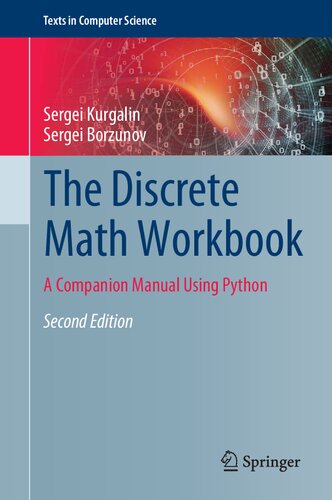

Most ebook files are in PDF format, so you can easily read them using various software such as Foxit Reader or directly on the Google Chrome browser.
Some ebook files are released by publishers in other formats such as .awz, .mobi, .epub, .fb2, etc. You may need to install specific software to read these formats on mobile/PC, such as Calibre.
Please read the tutorial at this link: https://ebookbell.com/faq
We offer FREE conversion to the popular formats you request; however, this may take some time. Therefore, right after payment, please email us, and we will try to provide the service as quickly as possible.
For some exceptional file formats or broken links (if any), please refrain from opening any disputes. Instead, email us first, and we will try to assist within a maximum of 6 hours.
EbookBell Team

0.0
0 reviewsThis practically-focused study guide introduces the fundamentals of discrete mathematics through an extensive set of classroom-tested problems. Each chapter presents a concise introduction to the relevant theory, followed by a detailed account of common challenges and methods for overcoming these. The reader is then encouraged to practice solving such problems for themselves, by tackling a varied selection of questions and assignments of different levels of complexity.
This updated second edition now covers the design and analysis of algorithms using Python, and features more than 50 new problems, complete with solutions.
Topics and features: provides a substantial collection of problems and examples of varying levels of difficulty, suitable for both laboratory practical training and self-study; offers detailed solutions to each problem, applying commonly-used methods and computational schemes; introduces the fundamentals of mathematical logic, the theory of algorithms, Boolean algebra, graph theory, sets, relations, functions, and combinatorics; presents more advanced material on the design and analysis of algorithms, including Turing machines, asymptotic analysis, and parallel algorithms; includes reference lists of trigonometric and finite summation formulae in an appendix, together with basic rules for differential and integral calculus.
This hands-on workbook is an invaluable resource for undergraduate students of computer science, informatics, and electronic engineering. Suitable for use in a one- or two-semester course on discrete mathematics, the text emphasizes the skills required to develop and implement an algorithm in a specific programming language.